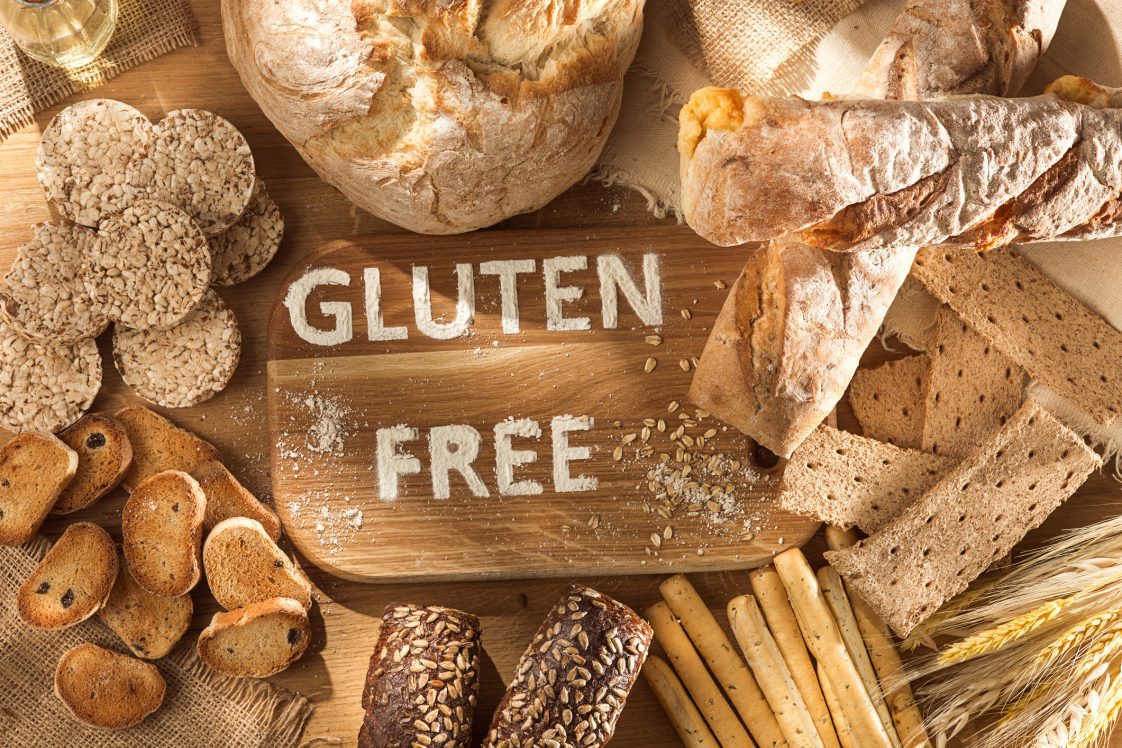Industry Key Highlights
Market Value in 2024: USD 145.65 Million
Projected Market Value in 2030: USD 152.34 Million
CAGR (2024-2030): 10.23%
Leading Country: United Arab Emirates (UAE)
Dominant Channel: Non-store based (online retail)
Primary Drivers: Health consciousness, social media influence, diversified consumer base
Top Product Categories: Bakery & confectionery, dairy & frozen desserts, beverages, and meat products
Market Overview
The GCC Gluten-Free Food Products Market has witnessed remarkable growth in recent years, evolving from a niche category catering primarily to individuals with celiac disease or gluten sensitivities into a broad-based health and wellness trend. With a market valuation of USD 145.65 million in 2024 and an anticipated value of USD 152.34 million by 2030, the industry is poised for sustained growth, projected at a CAGR of 10.23% during the forecast period. This momentum is largely driven by increased consumer health awareness, rising disposable incomes, and a significant shift toward online retail.
As the population across GCC countries becomes more educated about dietary health and nutrition, a growing number of consumers are embracing gluten-free products not just for medical necessity but also for lifestyle benefits. In tandem, the expanding variety and availability of gluten-free food options—ranging from snacks and baked goods to ready meals and beverages—are fostering deeper market penetration and consumer engagement.
Download Free Sample Report - https://www.techsciresearch.com/sample-report.aspx?cid=4971
Key Market Drivers
1. Rise in Health Awareness
The fundamental driver of the GCC gluten-free food market is the rising awareness surrounding health and dietary sensitivities. Celiac disease, gluten intolerance, and other gastrointestinal conditions are increasingly diagnosed, prompting affected individuals to adopt strict gluten-free diets. Simultaneously, a large segment of the population is transitioning to gluten-free consumption for general well-being, digestive benefits, weight management, and perceived overall health improvement.
2. Social Media Influence and Lifestyle Trends
Social media platforms such as Instagram, TikTok, and YouTube have emerged as powerful channels for disseminating health trends, including gluten-free diets. Influencers, celebrities, and nutritionists are actively advocating for gluten-free lifestyles, showcasing recipes, product recommendations, and health benefits. This exposure is deeply shaping consumer behavior, encouraging more individuals to make conscious dietary choices influenced by digital personalities and communities.
3. Diversification of Consumer Base
While traditionally dominated by individuals with specific dietary requirements, the gluten-free market in the GCC is now capturing a broader audience. Athletes, fitness enthusiasts, and wellness-focused consumers are increasingly opting for gluten-free products as part of a clean-eating lifestyle. This diversification is contributing to sustained demand and encouraging manufacturers to innovate and cater to a wider demographic.
4. Rising Disposable Incomes and Urbanization
The economic prosperity across GCC nations—especially in the UAE and Saudi Arabia—has led to rising disposable incomes and urban-centric lifestyles. Urban consumers are more exposed to international health trends, have greater access to health education, and are willing to spend on premium food products, including gluten-free alternatives.
Emerging Trends
1. Expansion of Product Portfolios
Food manufacturers are diversifying their gluten-free offerings, introducing products such as gluten-free pasta, cereals, frozen meals, and snacks. Companies are increasingly focusing on improving taste, texture, and nutritional value to cater to both necessity-based and lifestyle-oriented consumers.
2. Innovation in Packaging and Labeling
With growing health consciousness, transparency in packaging and accurate labeling have become paramount. Brands are investing in clean labeling, emphasizing certifications like "100% Gluten-Free," "Organic," and "Non-GMO," enhancing consumer trust and market credibility.
3. Growth of Online Retail and Direct-to-Consumer Models
The digital transformation across the GCC region is bolstering the non-store-based distribution channel. Online platforms offer consumers convenient access to a wide range of gluten-free products, particularly those in remote locations. E-commerce growth is further supported by secure payment systems, efficient logistics, and targeted digital marketing campaigns.
4. Integration with Vegan and Keto Lifestyles
As gluten-free trends intersect with other health movements like veganism and ketogenic diets, there is a noticeable overlap in product development. Brands are crafting hybrid solutions that cater to multiple dietary preferences simultaneously, expanding their market share and relevance.
5. Increased Presence of Western Brands and Expat Demand
The GCC region's cosmopolitan population, particularly in the UAE, includes a significant number of expatriates from North America and Europe where gluten-free diets are more common. This has led to a growing demand for international gluten-free brands and the introduction of premium imported products.

Market Segmentation
By Product Type:
Bakery & Confectionery
Dairy & Frozen Dessert
Beverages
Meat Products
Others
By Distribution Channel:
Store-Based (Supermarkets/Hypermarkets, Specialty Stores, etc.)
Non-Store-Based (Online Platforms, D2C Websites)
By Country:
United Arab Emirates (UAE)
Saudi Arabia
Kuwait
Qatar
Bahrain
Oman
Competitive Analysis
The GCC Gluten-Free Food Products Market is moderately consolidated, with key global and regional players investing in product development, partnerships, and brand positioning. The leading companies emphasize innovation, superior taste profiles, and clean-label certifications to differentiate themselves.
Key Players:
Modern Bakery LLC: A regional player with strong distribution and local relevance, offering a wide variety of gluten-free bakery products.
Solico Group: Known for its diversified food offerings and increasing focus on health-based product lines.
DR SCHÄR AG: A global leader in gluten-free foods, Dr. Schär has established a strong presence in the GCC through premium products and expansive product ranges.
The Bread Factory Limited: Specializes in artisanal gluten-free baked goods, catering to niche markets with a focus on quality and customization.
Conagra Brands, Inc: A major North American player that is gradually expanding into the GCC through retail partnerships.
The Hain Celestial Group: Offers a range of organic and natural gluten-free products, appealing to clean-eating consumers.
General Mills Inc: Markets popular gluten-free brands, leveraging global presence and innovation.
Kellanova: Focused on breakfast and snacking categories, including gluten-free cereals and bars.
The Kraft Heinz Company: Entering the gluten-free space with well-established brand trust.
Mrs Crimble’s: Known for indulgent yet gluten-free baked treats, appealing to a broader audience.
Country Spotlight: UAE – The Growth Engine
Among all GCC nations, the UAE stands out as the fastest-growing market for gluten-free food products. A combination of rising health awareness, a large expatriate community, and increased disposable income has significantly boosted demand. The UAE’s well-developed retail infrastructure and proactive health and wellness campaigns further accelerate this growth. Major supermarkets, health food stores, and online platforms continue to expand their gluten-free assortments, enhancing accessibility for consumers.
Future Outlook
The GCC Gluten-Free Food Products Market is expected to maintain its upward trajectory over the next decade. The synergy of digital transformation, health-centric consumer behavior, and growing product innovation will remain vital to sustained growth. As food manufacturers and retailers continue to embrace consumer demands for healthier and more diverse options, gluten-free products will move from niche to mainstream.
Innovations in taste, nutritional composition, and delivery mechanisms will play a central role in winning consumer loyalty. Moreover, strategic partnerships, localization of production, and investments in marketing will be key differentiators for brands aiming to capture larger market shares.
10 Benefits of the Research Report
Detailed Market Size & Forecast: Provides historical and forecast data to support strategic decision-making.
Comprehensive Competitive Landscape: Offers insights into major players and their market positioning.
Consumer Behavior Analysis: Explores changing preferences and lifestyle trends influencing purchasing decisions.
Emerging Trends Identification: Tracks innovative product developments and market shifts.
Distribution Channel Evaluation: Assesses store-based vs. non-store-based channel dynamics.
Country-Level Insights: Detailed analysis for each GCC nation, helping companies localize strategies.
Growth Opportunities & Market Gaps: Identifies unexplored areas for potential investments.
Strategic Recommendations: Supports business planning and go-to-market strategies.
Regulatory and Health Trends Overview: Understands evolving policies and their impact on product development.
Customization Options: Tailor-made insights based on client-specific business goals and regions of interest.
Conclusion
The GCC Gluten-Free Food Products Market is set to expand steadily, underpinned by evolving consumer preferences, digital retail growth, and heightened health consciousness. The convergence of these factors creates a fertile ground for innovation and market penetration. With robust opportunities for both international and local players, the future holds promising potential for stakeholders across the gluten-free value chain.
Contact Us-
TechSci Research LLC
420 Lexington Avenue, Suite 300,
New York, United States- 10170
M: +13322586602
Website: www.techsciresearch.com






